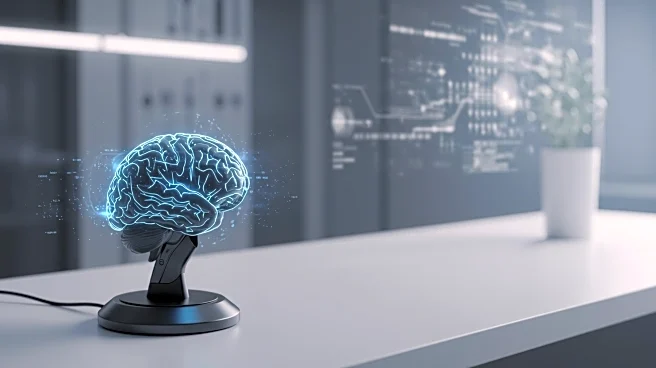What's Happening?
Sam Altman, co-founder of OpenAI, is reportedly in the early stages of launching a new brain-to-computer interface startup named Merge Labs. This venture is expected to receive backing from OpenAI’s ventures team and aims to rival Elon Musk’s Neuralink by developing advanced brain-computer interface technology. Merge Labs is anticipated to be valued at approximately $850 million. Neuralink, founded by Musk in 2016, has made significant advances in allowing individuals with severe paralysis to control devices through thought. The involvement of OpenAI in Merge Labs indicates an intensifying competition in the brain-tech sector between Altman and Musk, especially after their professional relationship soured following Musk’s departure from OpenAI in 2018.
Why It's Important?
The launch of Merge Labs signifies a growing competition in the brain-computer interface sector, which could accelerate technological advancements in merging human and machine intelligence. This development could have profound implications for medical technology, particularly in aiding individuals with disabilities. The rivalry between Altman and Musk may drive innovation and investment in this field, potentially leading to breakthroughs that could transform how humans interact with technology. Stakeholders in the tech industry, including investors and developers, stand to gain from the increased focus and resources dedicated to brain-computer interface technologies.
What's Next?
As Merge Labs progresses, it is likely to attract attention from investors and tech enthusiasts interested in the future of brain-computer interfaces. The competition with Neuralink may lead to rapid advancements and new applications for this technology. Stakeholders will be watching closely to see how Altman’s new venture impacts the market and whether it can successfully challenge Neuralink’s current position.
Beyond the Headlines
The ethical implications of brain-computer interface technology are significant, as they raise questions about privacy, consent, and the potential for misuse. As these technologies develop, there will be a need for robust regulatory frameworks to ensure they are used responsibly and ethically.









